Existing User Log In
New User Registration
Register for a free account to gain full access to the VGChartz Network and join our thriving community.



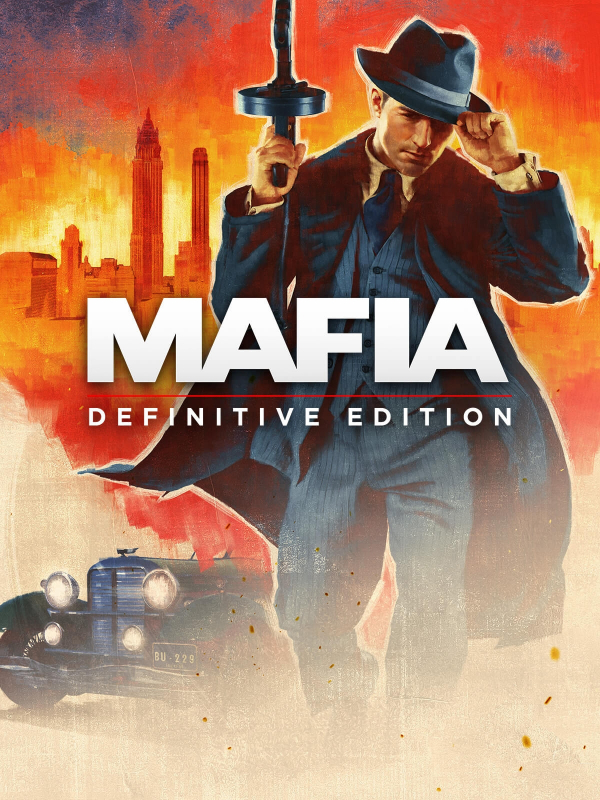

America - Front
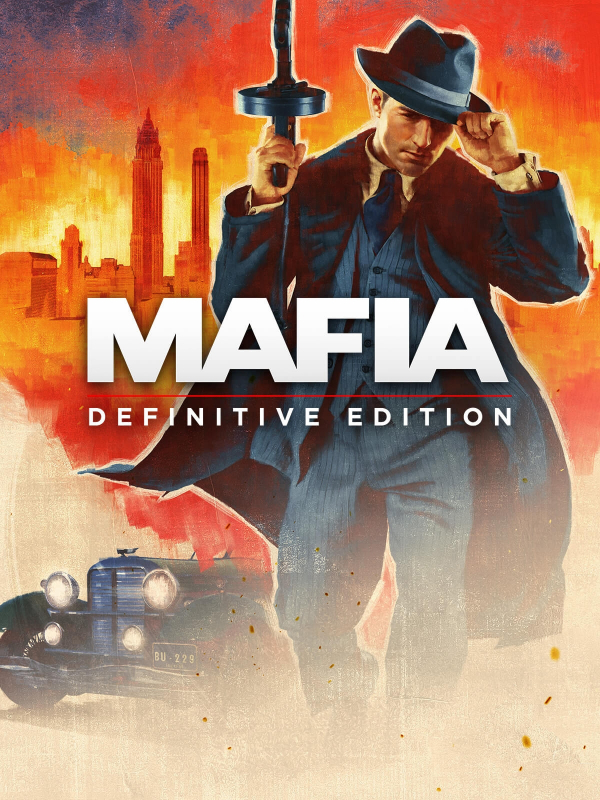

America - Back

Hangar 13
Action-Adventure
 (Add Date)
(Add Date) (Add Date)
(Add Date) (Add Date)
(Add Date)
| Owners: | 0 |
| Favorite: | 0 |
| Tracked: | 0 |
| Wishlist: | 0 |
| Now Playing: | 0 |
[Reviewer's note: Although I'll do my best to limit any SPOILERS, it's tough to outright avoid them. Since I dove in mostly blind (I played part of the original on PS2), I’d recommend you try to do the same. Viewer discretion advised.]
So, I'm minding my own, you see? Scoping out the rackets from other publishers before this next generation happens. You got big-time pushers showing a new IP or two, some rushed-to-market remasters, and a couple slouchy sequels looking to make a quick buck. Imagine my surprise when seeing 2K & developer Hangar 13 in tow showing their next project—Mafia: Definitive Edition. Given the general reception of their first project, Mafia III, I figured that dev been wearin’ cement shoes at the bottom of the Hudson. To see those mooks gallivanting about how they get to remake an early-2000s cult classic made me dizzy for a spell. Then I played it. Not only should it be considered an honor to the source material but also one of games' best crime dramas. Gimme' a light and I'll tell you why.
Lost Heaven. It's 1930 and The Great Depression is in its infancy. Caught at the wrong place at the wrong time, downtrodden cabbie Tommy Angelo is forced at gunpoint into helping two gangsters escape from a rival's ambush. Naturally, he's compensated for his efforts. This chance encounter eventually leads to Tommy later joining that same crew of his temporary kidnappers: the Salieri crime family.
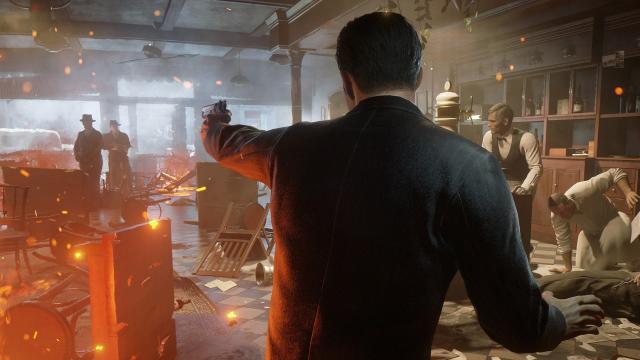
The plot synopsis I just divulged doesn't tell the whole story. You see, I've provided you the chronological beginning of Tommy's story, but not the actual start of this script. After sweeping camera shots of Lost Heaven, he's found sitting across a restaurant table from Detective Norman. Anyone familiar with crime films can piece together why he's there, but now we'll learn how via flashbacks.
I tend to be critical of that storytelling device, especially since it often saps tension. The way Mafia manages this structure is thoroughly engrossing though. It's all about the details. Tommy's chain-smoking and skittish demeanor initially seen by Norman lends an amped-up, desperate aura to the start; almost like he's conferring with his lawyer about his will. It also provides succinct context through each of the self-contained vignettes, with most chapters akin to an old-time dime comic. Tying these threads together, the snappy dialogue and brief intermissions give more dimension to Tommy as a character, enabling him to think back on how he arrived at this situation—perhaps unreliably—and what's on his mind now.
This structure aside, the chronological storyline is quite exceptional too. The climb from another despondent cabbie in a big city to a made man in the mafia will hit many trope-y hallmarks these stories are known for: your partners are archetypical greaseballs, the boss is all about results, the weaponsmith is the Italian tough guy, and gabagool is the only thing the gang eats. The last part is hyperbolic but it's meant to emphasize how this story captures all the major aspects of the Italian mob you've seen in films. Despite such... typicality there's that extra dimension, that added spice, to appreciate. For a man as ruthless as Don Salieri, framing him within his dialogue and composure as a go-getting businessman keeping his company afloat sells him as something more than someone honoring wishes on the day of his daughter's wedding.
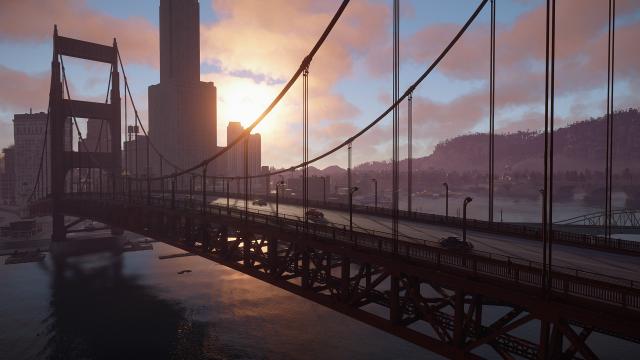
These dynamics are also complimented by solid presentation and creative set-pieces. The new English voice acting crew is among my favorite for this year. There's the occasional flubbed line by some characters trying to maintain a Chicagoan accent, but the vast sum settle into their roles incredibly well. I think special credit ought to be given to Ward Roberts as Ralphy the mechanic; the character gets barely any screentime but still makes an impact for his earnestness and Roberts' authentic stuttering ticks. The pacing never loses a beat thanks to a pleasant variety of scenarios. To keep my spoilers limited I'll say this: whether it's a wild thunderstorm in the countryside, or a tailing mission in broad daylight, there's almost a scientific application in keeping you invested despite how often you're driving from Point A to Point B.
In sum, there's so much to appreciate the more I think about Mafia's story. The secondary collectibles channeling Depression-era world-building add weight to Tommy's ambitions, the structure is surprisingly layered for what could've been a solid—if expected—crime drama, and its well-written script is more than a facsimile of Raymond Chandler. Part of me wishes some more time was given to Sarah, Tommy's wife, but I also see how that harmonizes with Tommy's flashbacks and what that may say about his personal life since becoming a made man. These factors, along with other nuances, are what make this story one of my favorites of the year.
Something that's crucial to understanding Mafia Definitive is the type of necessary overhaul done with gameplay. Even if you're ignorant about Mafia (original), saying the words "2002 third-person shooter" can give you an idea of its limitations. One major facet being the need to strafe in and out of cover, instead of having the modern standard popularized by Gears of War. To put it simply: the basics of Mafia III's systems are transplanted here. The on-foot combat encounters try to marry cover-based shooting, occasional melee bouts, and rudimentary stealthing to varying degrees of success.
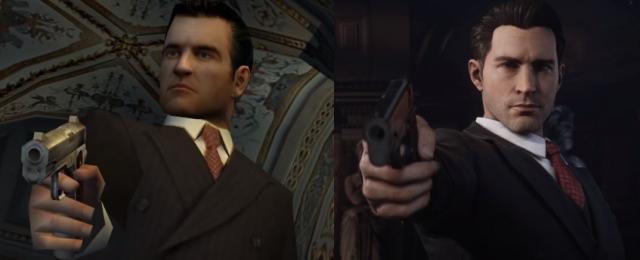
Shooting fares the best thanks to various scenarios, subtle tweaks like health pick-ups, and special risk/rewards dynamics when playing on 'Classic' difficulty, such as losing all ammo in your current magazine upon reloading. Because of these interlocking systems, complimented by measured pacing, I can't recall a single shootout that felt superfluous—despite their being copious in quantity. It does stumble in respect of enemies being bullet-sponges from specific weapons, a la Uncharted: Drake's Fortune. Getting the first shot(s) off with either a pistol or Tommy gun rarely phases combatants, whereas shotguns do have greater stopping power. Part of me got frustrated with this, along with enemies' exceptional movement speed; that said, I was surprised just how often the AI tactically altered course to a given scenario.
Fisticuff bouts don't really have the same measure of success. It basically comes down to button-mashing the attack button and opting for a quick counter when enemies throw knuckles back. It's not that far off Batman Arkham’s Freeflow Combat, but it's more wonky and the slim amount of unique finishing animations don’t do the comparison justice. Rounding out that simplicity are the stealth segments. The level design and enemy pathing is simple but deliberate in approach. Picking up bodies opens up tactical advantages and there's always a solid route to get the jump on any trigger-happy crowd.
When specifically looking at these mechanics from a distance, there are quirks and annoyances where you can tell this middle-market remake (priced $40) doesn't hit the same level of pristine polish as the biggest blockbusters. But those missteps don't take away from it being better than the sum of its parts either.
One of the best qualities Hangar 13 handled is the reactive world design. It can be something simple at first: scripted dialogue is interrupted after you've been caught speeding and have to pay the pursuing officer. Some chapters take this a bit further. One example is a gas station where you can opt for stealth and/or guns blazing in order to save a kidnapped friend. Choosing stealth will eventually result in a vehicular pursuit; should the perp's vehicle blow up before that scripted sequence occurs, however, he remains at the gas station and instead a short gunfight ensues. It's those variations, those integral details, which show the care this team put into Mafia.
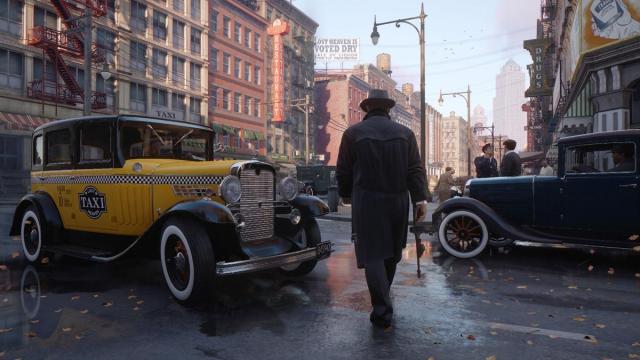
The final crucial considerations to Mafia's gameplay are the driving and open world design. As expected with this specific genre, driving plays an integral role for extra world-building and high-intensity chases. Since I stuck with Classic difficulty, acting cool was a necessity lest I gain unwanted attention for speeding or running a red light; beyond that, the simple act of driving feels appropriately laborious since several driving assists are disabled. These slight ancillary mechanics go a long way in providing more tension when driving around, keeping your attention to ensure no gumshoe catches on to your criminal intentions. You'll get the hang of the subtle steering differences eventually, but don't expect the type of technological advancements like suspension seen in modern vehicles. And while Lost Heaven is a more barren open-world title compared to contemporaries, the city's layout complements the campaign missions to make it feel more expansive and realized than the topographical map implies.
The best analogy for Mafia's gameplay is thinking of a bullet-riddled car that's still cruising without fail. The qualms made against some buggy takedown animations, the rudimentary melee system, and more diminish the final result but never sully it. Sure, the infamous racing mission can still be cruel on Classic, but when muscle memory works its course and you're first past the chequered flag that completion feels earned. Aside from having to turn on high aim assist for the armored car fight, there's no other time I was tempted to tweak any control options and miss the way it ought to be played. It’s one of those rare cases where even fair complaints feel like snitching when compared to the satisfying whole.
As expected with a remake of an 18-year-old game, the graphics have been completely redone. From a complete overhauling of cinematics, environmental background details, lighting, textures, and even Lost Heaven's byways, there's no question a great amount of work went into this project. Speaking as someone who recently reviewed a less-than-stellar remaster a couple of weeks back I can't help but appreciate that. Granted, the technical details reveal some cracks when you comb through the scenery or mess with NPC civilians. Regardless of that, there are so many times the historically-accurate art design lends a special atmosphere to scenes, down to the designer suits.
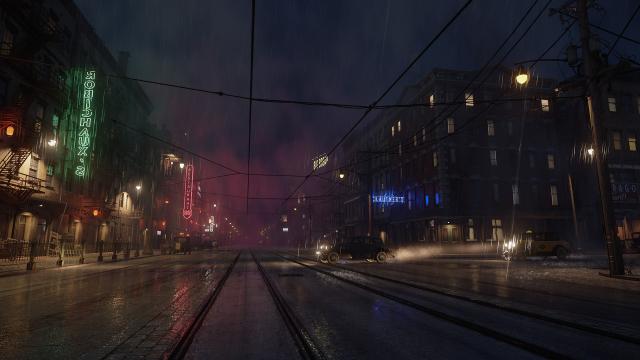
More than just the voice acting, Mafia's soundscape from OST to foley is damn great. Aside from the anachronistic end credits song, Jesse Harlin's composition hits the right upbeat & dour notes when necessary while honoring some of the Depression Era's most popular genres. It often reminded me of Boardwalk Empire, and that is never a bad thing. Aside from glaring bits where audio occasionally gets cut off whilst performing a melee takedown, the sound foley work for period-specific automobiles, guns, and background details sounds textured and accurate.
Value is an easy sell for me. Unless you're one of those expecting a dense open-world map packed with a plethora of side objectives, Mafia should hit your dollar-per-hour threshold. The story from beginning to end will run slightly over ten hours; you can double that time if considering a completionist run through free play mode. My only issue with this is how some scattered collectibles are so arbitrary, compared to something like secret cars tucked away for you to discover. It has that L.A. Noire problem of having you find various baubles just to have something else from the campaign, only Lost Heaven is—fortunately—more condensed.

After Mafia III and Mafia II: Definitive Edition's rough launches, I don't think many would've wept if Hangar 13 caught two in the temple. Mafia: Definitive Edition changes that outlook entirely. This remake isn’t just a graphical, gameplay, & storytelling overhaul; this reassessment of the original's strengths and weaknesses is also a means for Hangar 13 to do the same for its design ethos. Its conscientious focus on reinterpreting a beloved classic promises a bright future. Despite the end result still having some notable missteps, this remake is among the best games of 2020.
Despite being one of newest writers on VGChartz, Lee has been a part of the community for over a decade. His gaming history spans several console generations: N64 & NES at home while enjoying some Playstation, SEGA, and PC titles elsewhere. Being an Independent Contractor by trade (electric, plumbing, etc.) affords him more gaming luxuries today though. Reader warning: each click given to his articles only helps to inflate his Texas-sized ego. Proceed with caution.









